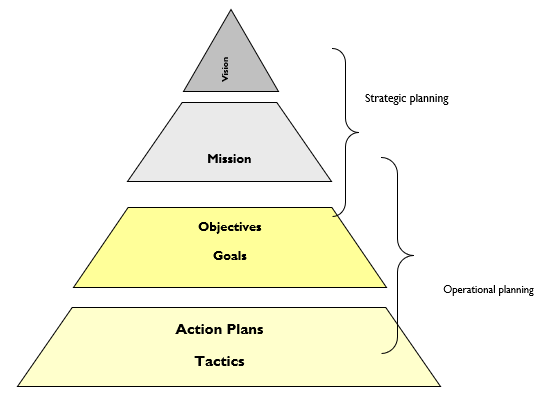Strategic management is the integration of all business functions of the farm so that the total farming system is managed pro-actively and in harmony with the internal and external environment (at business and macro-level) to achieve the strategic vision and long-term goals of the farming business.
Strategic management is therefore the process used in identifying, selecting and implementing the ‘best’ strategies.
Strategic management includes the following components (Nell & Napier, 2006):
- The strategic positioning of the farming business for the future
- It is a continuous process
- The process focuses on critical factors that play a significant role in creating a sustainable, competitive advantage.
- Achievement of a strategy focussed culture in management and staff, to promote a participative management process.
- Everyone involved in the farming business is committed to the same goals and strategies.
- Operational Planning is putting your company’s strategy to work, which means that company strategies should be broken down into departmental strategies, which should further be broken down into goals, objectives and action plans.
Strategic management can be seen as the umbrella term for the two sub-concepts: Strategic plan and operational plan.

Definitions to Distinguish between a Strategic and Operational Plan
A Strategic Plan is an organisation's summary of the development process and the presentation of core directions, including setting a vision, mission and strategic goals.
An Operational Plan is an annual work plan explaining how the goals of the strategic plan will be implemented and what budget and processes are required.
Strategic planning helps you to pull back the lens, get a big picture view and consider future scenarios. It gives you the best opportunity to maintain control, avoid serious pitfalls and capture opportunities. Thinking strategically about your company involves creating a vision for where you want to be in 2, 5 or 10 years, Strategic planning is not just for big companies and has benefits no matter what your scale or goals. Your defined goals might include increasing the size of your company, sales or method of production. Goals may also include environmental and sustainability targets or to sell the business
Operational planning focuses tightly on the day to day operations with no more than a 12-month cycle. Depending on the company’s activities, the manager might want to further break things down to daily, weekly, monthly or seasonal activity segments. Operational planning focuses on adjusting and developing controls, increasing efficiencies and reducing time and costs. The purpose of an operational plan is to effectively execute the goals identified in the strategic plan. Operational planning will determine where to focus attention and where you can take a step back. In addition to informing human resource decisions (such as hiring additional help), operational planning can identify areas where you should look at outside professional assistance (accountant, technical advisor or shared administrative assistant).
Operational plans answer key questions such as “Who is doing what?”, “What are the day to day activities?”, “How will the suppliers and vendors are used?”, “What are the labour requirements?” and “What are the sources of raw materials?” Specific plans can be developed for human resources, production, facilities, logistics and distribution.
The key to developing both strategic and operational plans is for the higher-level management to step back from the daily activities, and allow business units to manage their own performance, obviously with agreed upon and controlled targets. It requires the allocation of time and a mental shift to ensure objectivity.

Figure 2.1 Strategic vs. Operational planning
Click here to learn more about the role of strategy in business.